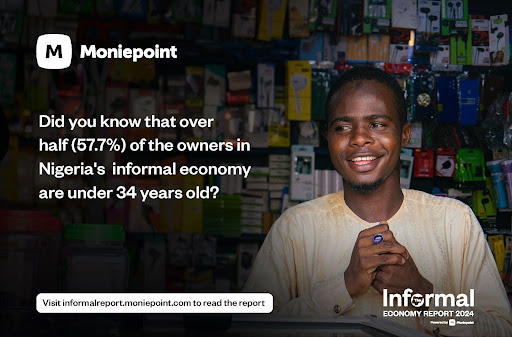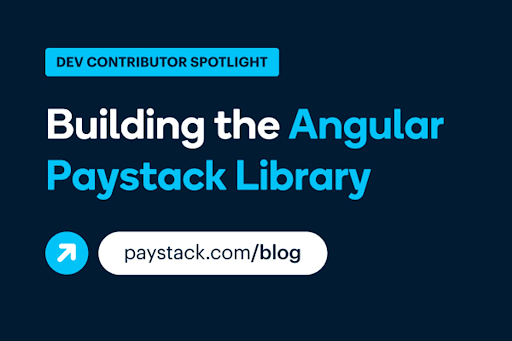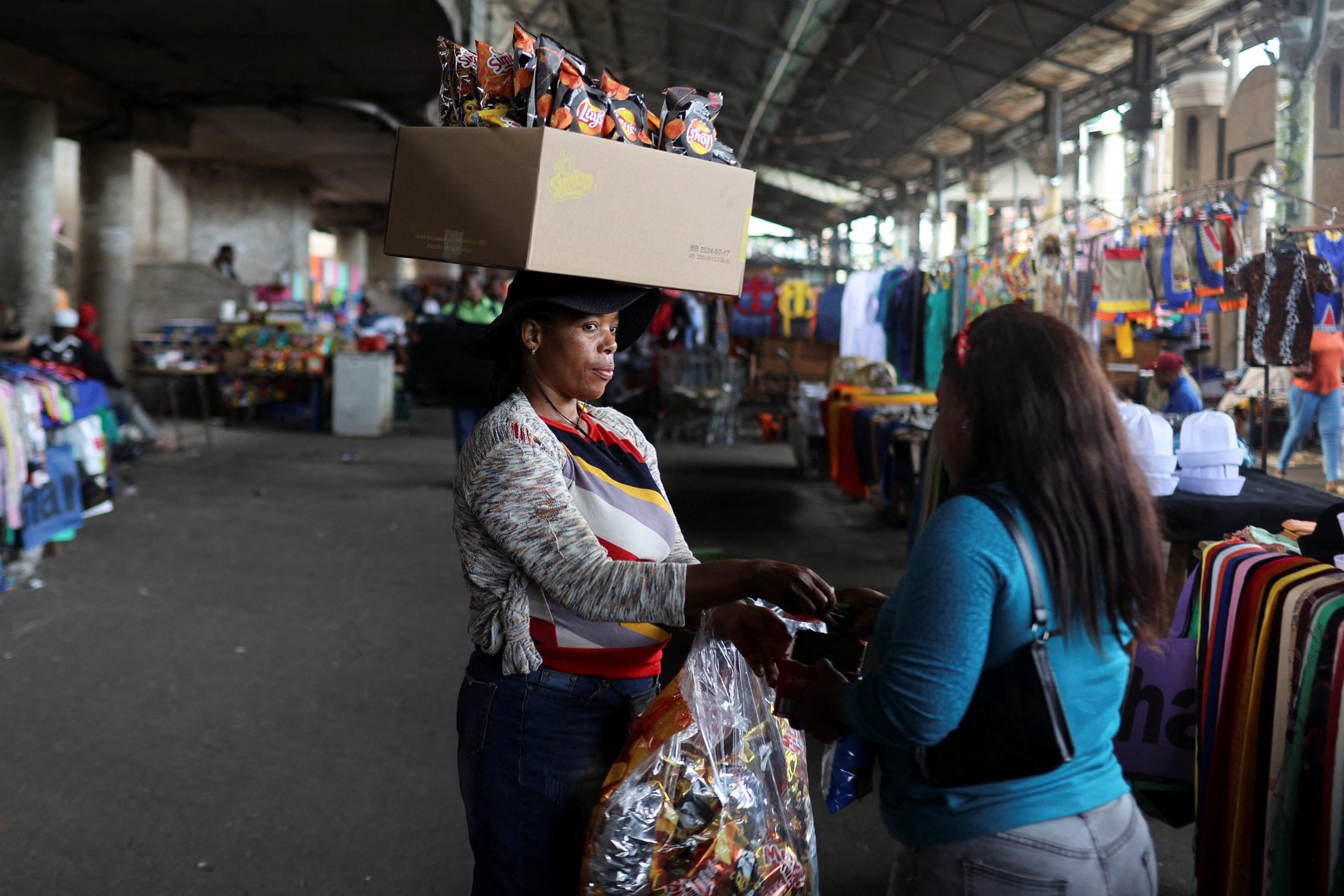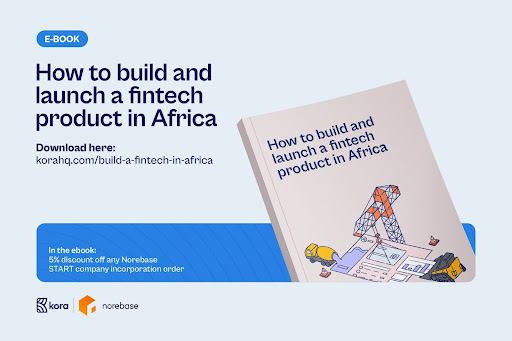

Good morning ☀️
If you own a company or manage one, here’s a gift for you: 30% off Moonshot tickets if you buy 5 or more for your teams and groups.
Our promise to you is that Moonshot 2024 will have valuable content to foster team growth and innovation. Your team members can engage in workshops focused on accelerating startup growth, participate in panel discussions about the global digital economy and building elite teams, and attend additional sessions offering strategic insights to help achieve international development goals.
Save a row for your team at Moonshot. Get the discount here.

Cybercrime
Card operations flaws cost Ecobank Kenya millions of dollars

Though banks typically enjoy huge financial returns, fraud can still hit hard. And it is becoming a growing problem for Kenya’s financial ecosystem. According to TransUnion Africa, a credit reporting agency, Kenyan banks lose about $130 million to cybercriminals yearly.
While some cases like Equity Bank, the country’s biggest lender, which recently lost $2.1 million to card fraud in April, are usually public spectacle, some other banks silently suffer these losses.
Between 2020 and 2022, Ecobank Kenya lost millions of dollars due to flaws in its card operations. An internal report showed that $43.4 million in transactions were wrongly posted, $232,464 lost in chargebacks, and a troubling $2.1 million balance lacked proper documentation.
“There was disregard for procedures in the merchant’s operation of acquiring product GLs (general ledgers). Many manual entries posted therein were unprocedural and some erroneous,” the report stated.
The bank’s poorly documented procedures allowed these errors to happen. But this wasn’t a case of isolated mistakes; internal control and employee oversight were also guilty. Banks may need to start paying more attention to critical operations in their units, as well as the staff trained to handle them.
Given how a loss this big went under the radar for so long, it’ll be interesting to see how Ecobank Kenya’s financials have recovered and what steps the bank has taken to prevent future issues. More importantly, whether a layoff looms.
Read Moniepoint’s 2024 Informal Economy Report

Did you know that 57.7% of the business owners in Nigeria’s informal economy are under 34 years old? Click here to find out more about the demographics of Nigeria’s informal economy.
Companies
Adani’s Kenyan ambitions face backlash

Adani Group’s Kenyan ambitions started as a rumour in July.
The country was just coming from a month of anti-government protests, you could still feel a burning sensation on the face from teargas that had been lobbed to disperse angry crowds. And when a whistleblower leaked the details of the secret plan to lease the Jomo Kenyatta International Airport (JKIA), the government was quick. President Ruto termed the reports as “fake news.”
Eventually, the details of the 30-year concession deal were made public. However, a question that has been lingering is how the controversial Indian infrastructure company owned by Gautam Adani, India’s second richest man, knew of Kenya’s airport modernisation plan and sent a private-initiated proposal.
On Monday, Adani Group told a Kenyan court it became interested in redeveloping the Jomo Kenyatta International Airport (JKIA) following media reports of its deteriorating condition. Look out for Adonijah’s reporting on this development.
The $1.85 billion deal has faced intense local opposition, with lobby groups questioning its transparency.
The Kenya Human Rights Commission (KHRC) and the Law Society of Kenya (LSK), which filed a case against Adani Group, want the deal stopped. KHRC and LSK argue that the money required for the project can be raised locally without leasing the airport for 30 years.
Issue USD and Euro accounts with Fincra

Whether you run an online marketplace, a remittance fintech, a payroll, a freelance platform or a cross-border payment app, Fincra’s multicurrency account API allows you to instantly create accounts in USD and EUR for customers without the stress of setting up a local account. Get started today.
Venture Capital
Does the climate tech hype match the current market?

There’s no doubt that funding from development finance institutions (DFIs) has significantly shaped Africa’s venture capital (VC) landscape. Stuck with limited sources of capital, unlike their global counterparts, African VC firms have turned to DFIs since 2017, when TLcom Capital became the first institutionally backed commercial VC in Africa.
That relationship, described as “great” and “beneficial” by two general partners, has played a part in the boom in funding for Africa’s climate tech market.
Naturally, if you give someone money, you can advise on where to invest the money or the best way to invest the money. And if you’re an DFI backed by a government that is climate-focused, which is most of the rich ones, you advise African VC firms to invest in climate tech.
As a result, climate tech funding in Africa surged, reaching $1.04 billion in 2023 (from $340 million in 2019), making it the second most funded sector after every investor’s darling—fintech.
But that’s the only similarity that both share. Unlike fintech, which has become a vibrant ecosystem in Africa and has clear winners like Paystack, Wave and Flutterwave, climate tech is yet to create a market that matches its clout.
Venture capitalists love to show their investors above average returns and climate tech has not yet displayed enough returns to warrant the amount of investment that it constantly attracts.
At this point, it is only right to point out that creating a market takes time. The aforementioned fintechs did not reach their scale in a short period of time. Rome was not built in a day, but there were always signs that it might become a major city.
Climate tech solutions in Africa must soon demonstrate their value. The path forward requires key players to emerge and deliver scalable, transformative solutions. Otherwise, despite the billions pouring in, the sector risks stagnating as a “policy-driven” space without the commercial breakthroughs needed to address Africa’s climate challenges.
Psst 👀 Here’s Paystack Developer Contributor of the month

Microsoft Engineer Ekene Ashinze built the Angular Paystack Library, a module that helps developers accept payments in their Angular apps with Paystack. Discover his journey in creating the library and how it’s opened doors for him both locally and globally. Learn more →
Economy
South Africa expects rate cuts as inflation drops below the central bank target

Yesterday, South Africa announced its lowest inflation rate in three years. Headline inflation for August was at 4.4% down from July’s figure of 4.6%. The slowdown in inflation was driven by a slowdown in transport prices and utility rates. Food inflation was at 4.1% down from 4.6% in July.
The 4.4% reading meant that South Africa’s inflation rate dropped below its benchmark rate of 4.5%, raising hopes of the first interest rate cut in two years. The South African Reserve Bank (SARB) monetary policy committee previously raised interest rates nine times in a row in a bid to tame inflation. The move seemed to have worked as inflation dropped from 7% in January 2023 to about 4.4% in August 2024.
However, analysts don’t expect a huge cut in the country’s interest rates which currently stand at 8.25%. Analysts predict a 0.25%-0.5% reduction in the interest rates. The SARB which typically cuts rates by 25% will decide on Thursday by 3 p.m.
CRYPTO TRACKER
The World Wide Web3
Source:

|
Coin Name |
Current Value |
Day |
Month |
|---|---|---|---|
| $61,996 |
+ 2.75% |
+ 1.30% |
|
| $2,412 |
+ 3.91% |
– 10.11% |
|
|
$3.50 |
– 0.94% |
– 0.94% |
|
| $138.66 |
+ 5.97% |
– 6.58% |
* Data as of 06:30 AM WAT, September 19, 2024.
Events
- Catalysing Conversations by Endeavor Nigeria, which brings together Nigeria’s most exciting high-impact entrepreneurs, influential business leaders, and forward-thinking policymakers for inspiration, learning, and networking, is one of the highlights of the Endeavor events calendar. With a projected attendance of 500 curated in-person guests and over 500 virtual audience members, this event promises to be a remarkable gathering of innovation and collaboration. Register here.
- Selar, Africa’s largest creator platform, is hosting its third annual Creator Summit, themed “Living The Pan-African Dream as a Creator.” Taking place on September 20th and 21st, 2024, the program will feature top African creators, actors, and media personalities, including Big Cabal Media’s Tomiwa Aladekomo, Moe Odele, Tunde Onakoya, and more. They will discuss topics about content monetisation and digital entrepreneurship to empower African creators to build sustainable careers in the global marketplace. Apply here to attend.
- Difficulties within Africa’s economic landscape have raised questions about the feasibility of building successful startups on the continent. Iyin Aboyeji, a Nigerian entrepreneur who co-founded two companies valued at over $1 billion before the age of 30, is now a prominent startup investor. He is one of the featured speakers at Moonshot 2024, joining other innovators and industry leaders working on groundbreaking solutions to Africa’s most pressing challenges. Save your seat at Moonshot! Get tickets here.
- Step into the Future with AWS Community Day West Africa 2024! Are you ready to be part of the revolution shaping the next era of tech? Join the trailblazers, visionaries, and innovators who are pushing the boundaries of what’s possible. This is your chance to connect, learn, and ignite your passion alongside the brightest minds in the industry. Don’t just witness the future—be a part of it on September 27th & 28th. Register today.
Issue virtual USD cards for you and your customers

Do you want to issue virtual USD cards for your customers and business expenses? Use Kora’s APIs to issue cards, customise your card program, and set your customers’ funding limit to your risk level. Get started here.

Written by: Faith Omoniyi, Emmanuel Nwosu, Adonijah Ndege & Muktar Oladunmade
Edited by: Olumuyiwa Olowogboyega & Timi Odueso
Want more of TechCabal?
Sign up for our insightful newsletters on the business and economy of tech in Africa.
- The Next Wave: futuristic analysis of the business of tech in Africa.
- Entering Tech: tech career insights and opportunities in your inbox every Wednesday at 3 PM WAT.
- TC Scoops: breaking news from TechCabal
P:S If you’re often missing TC Daily in your inbox, check your Promotions folder and move any edition of TC Daily from “Promotions” to your “Main” or “Primary” folder and TC Daily will always come to you.























